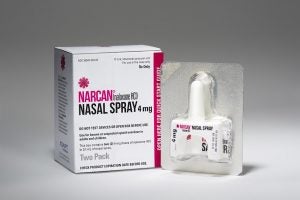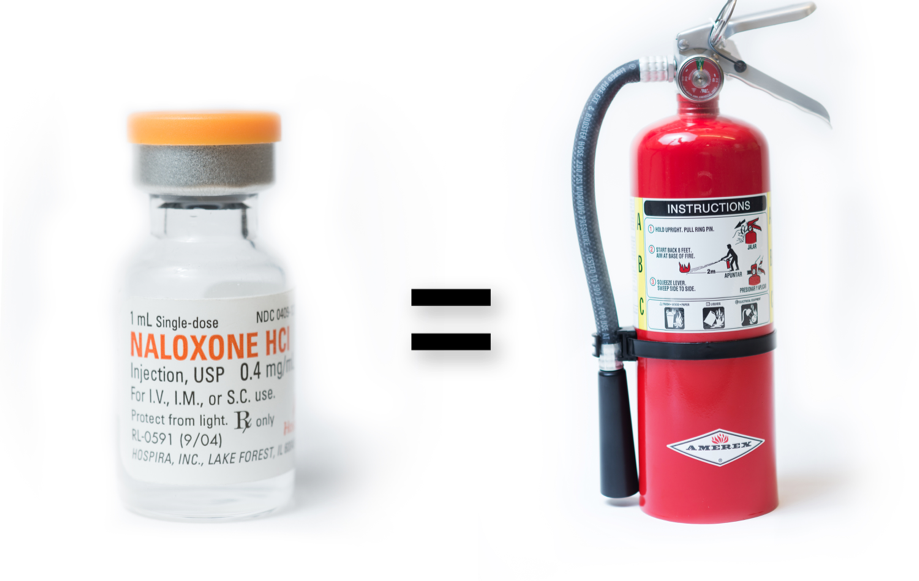Each participant in the webinars receives naloxone nasal spray, fentanyl test strips
By Allie Shinskey
The University of Rhode Island’s College of Pharmacy‘s Community First Responder Program, which provides free Narcan training seminars to the local community, has moved online due to coronavirus concerns. Each person who completes a session will also receive a free naloxone (Narcan) nasal spray kit and fentanyl test strips by mail.
Seminar participants will learn to recognize and respond to an opioid overdose as an effort to help fight the opioid abuse crisis in Rhode Island. They will receive advice and other resources “to become a true Community First Responder,” the flyer reads.
 “Understanding how to recognize an overdose, and having these resources can help save lives when seconds are crucial,” said Clinical Associate Professor Anita Jacobson, who coordinates the program.
“Understanding how to recognize an overdose, and having these resources can help save lives when seconds are crucial,” said Clinical Associate Professor Anita Jacobson, who coordinates the program.
The seminars will be hosted by URI fourth-year Pharmacy student Morgan Perich, and Jacobson said that there will be more seminar dates to come in the future. The seminars are available via Webex. They are scheduled for Tuesday, April 7 at noon; Wednesday, April 8th at 3 p.m.; Thursday, April 9 at 5 p.m.; and Friday, April 10 at noon. Click the link to join that seminar.
Because COVID-19 is a respiratory infection, similar to how opioid overdoses cause respiratory problems, Jacobson stressed that it’s extremely important that these seminars continue remotely.

“We want to be sure we can continue to provide our Community First Responder Program throughout the isolation period,” She said. “Anyone who knows someone taking opioids for any reason can be trained to recognize and respond to an overdose.”
Because the content of these seminars is appropriate for ages 12-plus, Jacobson said, this type of training could even be offered as part of a health course for middle or high school students in the future. She also said the seminar itself is actually targeted toward those who live in rural areas and smaller towns in Rhode Island where it takes longer to get to a hospital, such as West Greenwich, Hopkinton and Burrillville, to name a few.
“We are optimistic that our online seminars will be a success,” Jacobson said. “As people are following the governor’s recommendations to stay at home, we believe our online Community First Responder Program seminars may even have larger attendance.”
If you are part of a rural Rhode Island community organization or school, and would like to host a webinar for your employees, volunteers, students or members, you can email uriCFRP@etal.uri.edu to schedule a WebEx training.
Anyone else interested in these seminars and programs is encouraged to follow “RI Community First Responder Program” on Facebook for updates on when future seminars will be held. You can also visit the program’s website at web.uri.edu/cfrp for more information and educational modules about the opioid epidemic.
Allie Shinskey is a sophomore journalism major and intern with the URI Academic Health Collaborative.

